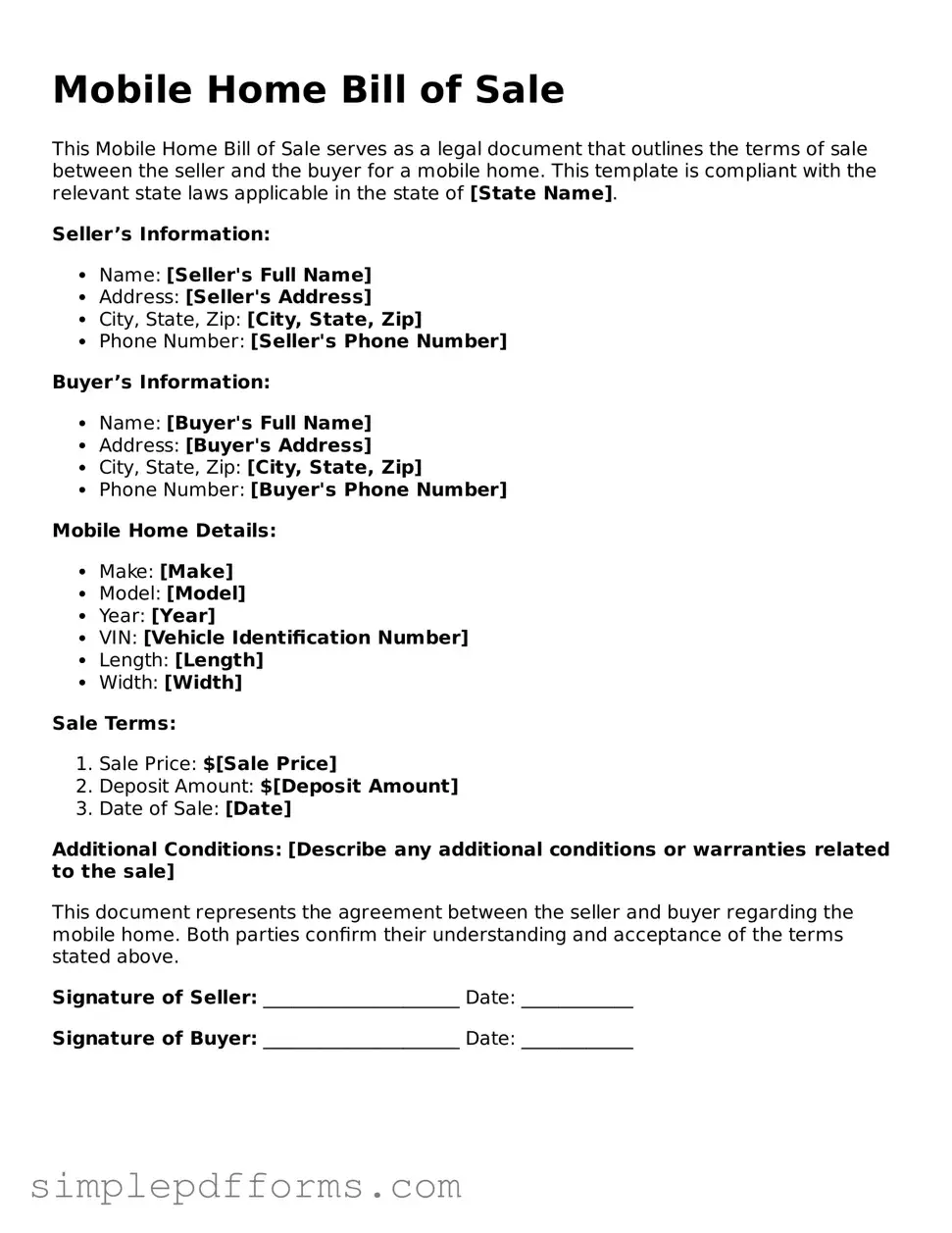Free Mobile Home Bill of Sale Form
A Mobile Home Bill of Sale is a legal document that facilitates the transfer of ownership of a mobile home from one party to another. This form outlines essential details such as the buyer and seller's information, the mobile home's description, and the sale price. Understanding this document is crucial for ensuring a smooth transaction and protecting the rights of both parties involved.
Open Mobile Home Bill of Sale Editor Now

Free Mobile Home Bill of Sale Form
Open Mobile Home Bill of Sale Editor Now

Open Mobile Home Bill of Sale Editor Now
or
Get Mobile Home Bill of Sale PDF Form
Your form is waiting for completion
Complete Mobile Home Bill of Sale online in minutes with ease.